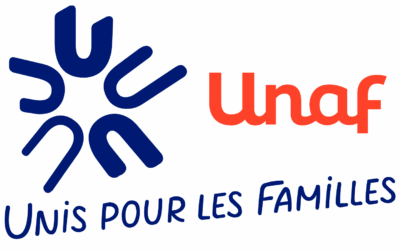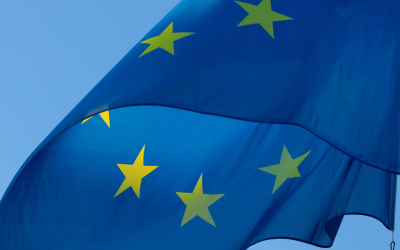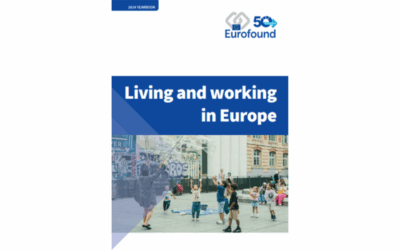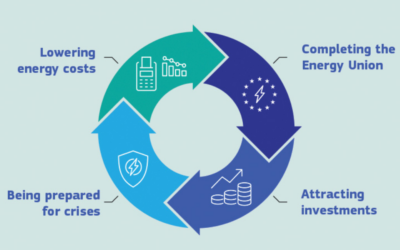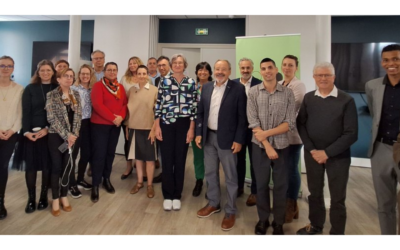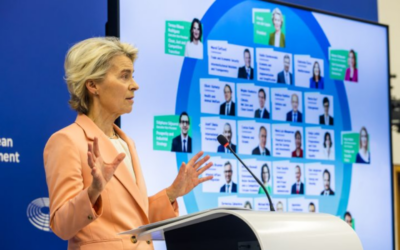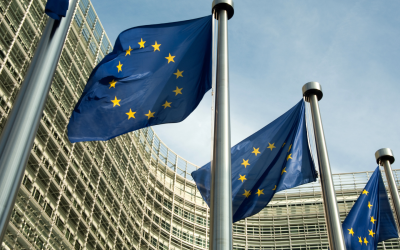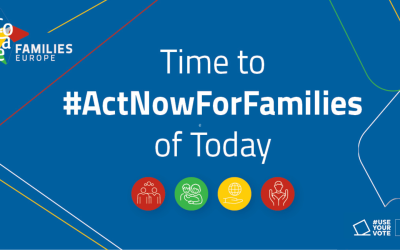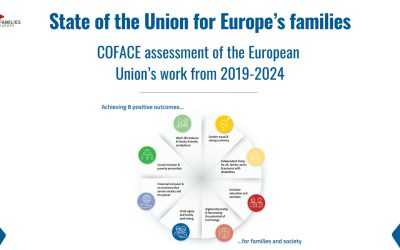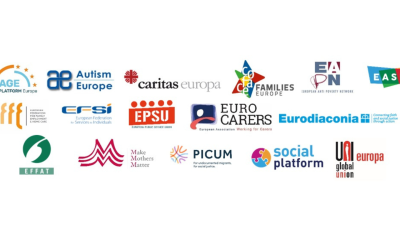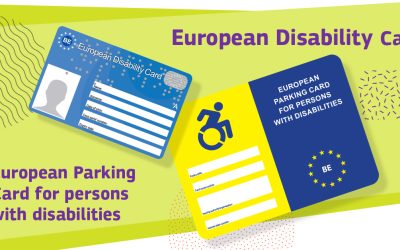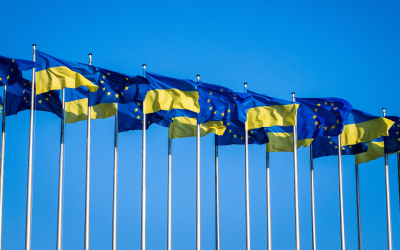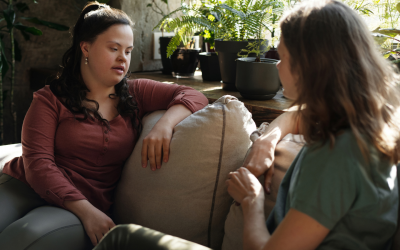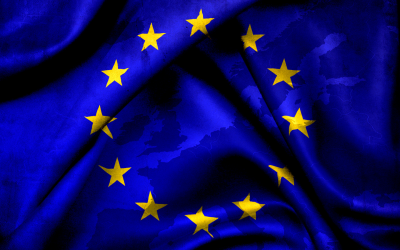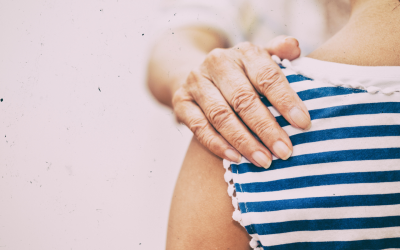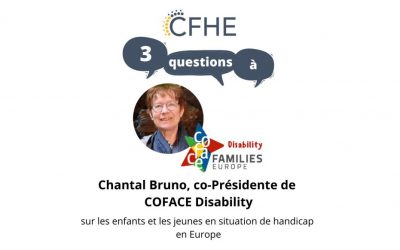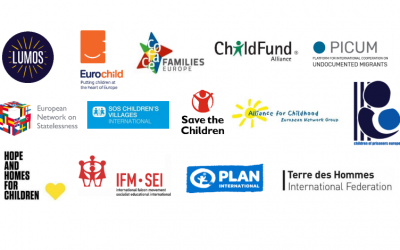Youth of Diverse Families (YDF), a North Macedonia based youth-led organisation and member of COFACE Families Europe, has sent an open letter to Roxana Mînzațu, European Commissioner for social rights and skills, quality jobs and preparedness.
Tag:
French families respond to consultation on European Pillar of Social Rights action plan
COFACE Families Europe’s member organisation, the Union Nationale des Associations Familiales (Unaf), has shared its feedback on the European Commission’s new action plan designed to advance the implementation of the European Pillar of Social Rights.
COFACE Families Europe contributes to the Gender Equality Strategy 2026-2030 public consultation
In May 2025, the European Commission launched a public consultation to shape its upcoming Gender Equality Strategy for 2026–2030. COFACE has responded to the consultation.
Living and working in Europe: key family insights from Eurofound’s 2024 Yearbook
Last week, Eurofound published its annual Living and Working in Europe Yearbook, providing key research findings on the changing nature of work and life across the EU in 2024.
Action plan for affordable energy
The European Commission brings relief to European consumers and businesses with Action Plan to save €260 billion annually by 2040.
Time for a game-changing EU Gender Equality Strategy post-2025
International Women’s Rights Day 2025 takes place at a pivotal moment for the European Union. The EU’s current Gender Equality Strategy 2020-2025 is concluding this year and following this, a new strategy is to be launched in 2026. This transition offers an opportunity to set new priorities and intensify efforts towards inclusion, equity, and support for women. COFACE will continue to push for an ambitious new strategy with flagship initiatives focusing on closing the gender care gap, and in general on addressing the intersections of gender equality and family well-being.
Who’s caring for the carers ? Call for greater recognition and support for family carers across EU policies and funding
In most European countries, there is a lack of adequate community-based services for persons with care needs. In many cases, this gap is filled by family members who frequently face the challenge of balancing their own needs with the demands of caregiving. However invaluable this role may be, non-professional care provided by family members should never replace the duty of national public authorities to provide high-quality, accessible and affordable support and care services to ensure people’s full participation in society.
Unapei leads the way in shaping inclusive EU policies for people with disabilities
On 13 September 2024, Unapei’s Europe Commission held a pivotal seminar in Paris, bringing together members of the Unapei network and their European partners, including COFACE Families Europe. Unapei’s Europe Commission is dedicated to addressing EU political developments related to the rights and inclusion of people with disabilities and their families, with a focus on positively influencing these issues.
Towards a new European Commission 2024-2029: spotlight on Commissioners responsible for family-supportive measures
September is a packed month of European political developments, as anticipated following the June European elections. Brussels has been particularly busy with the unveiling of portfolios of the new European Commission college by President-elect Ursula von der Leyen, with a full presentation to the European Parliament of the plans for 2024-2029.
COFACE member AGF’s position on the EU parenthood recognition regulation
The representatives of the EU Member States are currently negotiating a proposal from the EU Commission for a Council Regulation on the mutual recognition of parenthood in the EU. The planned regulation aims to ensure that the parenthood of a child that is legally established in one EU member state is also recognised by the other member states.
European Commission takes Germany to the EU court over family benefits for mobile workers
In July 2024, the European Commission decided to refer Germany to the Court of Justice of the European Union for failing to uphold the rights of mobile workers from other EU Member States as regards the amount of family benefits granted to them.
European elections in the spotlight – time to ACT NOW for families of today
On 6-9th June 2024, Europeans voted to renew the European Parliament and new Members of European Parliament (MEP) will convene for the first time in Plenary mid-July in Strasbourg, France. While the European People’s Party (EPP), European Conservatives (ECR) and Identify and Democracy Group (ID) have seen an increase in seats, the Greens and Renew Europe have had significant losses. The Socialists have maintained around the same number of seats. The biggest increase has been for the non-aligned MEPs which are a heterogenous group, yet with most of them coming from the far right.
European Commission launches toolkit to support social housing in Member States
The European Commission has released a new toolkit to help policymakers make the best use of EU funding to invest in social housing and accompanying services. This initiative addresses the urgent need for affordable and decent housing, which is crucial for social inclusion and enables greater participation in education and the labour market.
European Child Guarantee centre stage in the Belgian presidency of the EU
On 2-3rd May 2024 in Brussels, the Belgian presidency of the EU organise a conference entitled European Child Guarantee from engagement to reality. The event had a dual objective: firstly, to give key players the opportunity to analyse the work already completed and what remains to be done to achieve the objectives set, and secondly, to provide Child Guarantee coordinators with a platform to share their knowledge in the implementation of the European Child Guarantee.
State Of The European Union for Families: COFACE assessment of the European Union’s work from 2019-2024
In 2019, COFACE Families Europe mobilised voters locally through its member organisations (representing families of all types, without discrimination). These recommendations are addressed at EU-level policymakers in the European Commission, European Parliament and Council of the EU, from whom we expect joint leadership to ensure tangible results for Europe’s citizens. It is on this basis that we have assessed the European Union’s work from 2019 to 2024, and how it contributes to achieving eight positive outcomes for families of today.
ACT NOW FOR FAMILIES OF TODAY
COFACE has the ambition to shape together a strong social Europe fit for families and foster a European society that is more inclusive, offers equal opportunities and brings everyone forward.
In preparation of the next European elections on 6-9th June 2024, here are ten specific actions we would like to see integrated in the programme of the European Union.
Joint statement: Time for an ambitious European Long-Term Care Platform
In view of the High-Level event of the Belgian presidency of the EU on the European Pillar of Social Rights taking place in La Hulpe on 15 and 16th April 2024, as well as the upcoming European elections, 16 European organisations call on EU policy makers to enhance the implementation of Pillar principle 18 on the right to long-term care under the next 2024-2029 legislature, starting with the creation of a European Long-Term Care Platform.
The European Commission’s guide on good electoral practices for persons with disabilities
Ahead of the upcoming 2024 European elections, the European Commission published a guide on good electoral practices for persons with disabilities which was published in December 2023. The guide, as announced in the Strategy for the Rights of Persons with Disabilities 2021-2030, presents an overview of good electoral practices from different Member States aiming to further improve participation of citizens with disabilities in the electoral process.
#MakeItWork – a campaign from the European Commission to promote work-life balance
The #MakeItWork campaign, spearheaded by the Commission, is dedicated to championing the importance of achieving a harmonious work-life balance. Through this initiative, the Commission strives to raise awareness about the significance of balancing professional commitments with personal and family responsibilities.
A step towards inclusivity: EU Commission proposes harmonised European Disability and Parking Card
On the 6th of September 2023, following years of advocacy, a pilot project with eight EU countries, and extensive consultations with stakeholders, the European Commission put forward the long-awaited proposal for a European Disability Card and a European Parking Card that will facilitate persons with disabilities to access the right to free movement.
Tech companies to comply with EU Digital Services Act for a safer online environment
In November 2022, the Digital Services Act (DSA), which introduces new rules for online service providers, came into force. It significantly improves the mechanisms for the removal of illegal content and for the effective protection of users’ fundamental rights online, including the freedom of speech. It also creates a stronger public oversight of online platforms, in particular for platforms that reach more than 10% of the EU’s population.
European Semester 2023 Reports: Spotlight on Measures to Boost Resilience of Families
The Commission presented the annual European Semester Spring Package on 24 May 2023. The Package includes a Communication, country reports and country-specific recommendations for all 27 Member States, in-depth reviews for 17 Member States, and a Commission proposal on guidelines for Member States’ employment policies in 2023.
COFACE contribution to the European Year of Skills: life-long learning on social rights
The European Commission’s Directorate General for Education and Culture (DG EAC) published the final report of its Fifth European Summit which is an annual event attended by EU officials, member states ministers and education stakeholders. The report summarises the main topics discussed at this high-level event which focuses on key trends in education and training.
European Commission proposes new rules for the recognition of parenthood between Member States
In December 2022, as part of its Equality package, the Commission adopted a proposal for a Regulation aimed at harmonising at EU level the rules of private international law relating to parenthood. In line with the EU Strategy on the Rights of the Child, the proposal is focused on the best interests and the rights of the child.
What the EU has done to address the energy crisis
The Commission has been tackling the issue of rising energy prices for the past year. Since Russia’s invasion of Ukraine and its further weaponisation of energy resources, the situation on the energy market has worsened considerably.
Ukraine: Commission presents guidance to help people fleeing war access jobs, training and adult learning
The guidance covers both people eligible for temporary protection under the Temporary Protection Directive as well as those eligible for adequate protection under national law. Since the beginning of Russia’s unprovoked war against Ukraine and its civilians, over 7 million people have fled Ukraine and reached the EU. So far, only a relatively small number of those of working age have entered the EU labour market, though the number of people wanting to do so is expected to rise.
Report of the Conference on the 2021 European Day of Persons with Disabilities
The report of the conference to celebrate the 2021 European Day of Persons with Disabilities has just been published. The online conference brought together more than 400 politicians, high-level experts, and disability advocates.
European Commission publishes country-specific recommendations
The European Commission’s 2022 European Semester Spring Package provides the Member States with support and guidance two years on from the first impact of the COVID-19 pandemic and in the midst of Russia’s ongoing invasion of Ukraine.
Gender equality: Economic value of care from the perspective of the applicable EU funds
Gender inequalities are at the heart of the care economy, directly linked to women’s position on the frontline of unpaid and low-paid work in the globalised care economy. The European Commission published a study exploring the EU care economy, the gendered nature of care work and its continued reliance on unpaid or low-paid work of women.
Get to know more about COFACE’s work for the rights of children with disabilities
Chantal Bruno, the COFACE Disability co-president, was interviewed by the CFHE (Conseil Français des Personnes Handicapées pour les affaires Européennes et internationales) to discuss our work for the rights of children and young people with disabilities in Europe.
Joint Statement On the first anniversary of EU Strategy on the Rights of the Child
On the first anniversary of the EU’s Child Rights Strategy, COFACE alongside 13 organisations calls to put child rights at the heart of EU policies and apply the Strategy responding to the crisis in Ukraine to support all children and their families.
The EU Commission proposes EU-wide rules to combat violence against women and domestic violence.
Violence against women and domestic violence are pervasive throughout the EU and are estimated to affect 1 in 3 women in the EU. On International Day of Women’s Rights, March 8th 2022, the European Commission presented EU-wide rules to combat violence against women and domestic violence.
Poverty and Mindset : How can poverty and exclusion over generations affect aspirations, hope and decisions and how to address it
The European Commission published a report examining how long-term poverty and social exclusion may affect how people consider themselves and their future, and how they act in relation to it.



